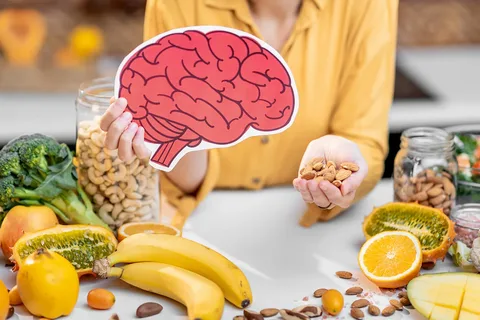Nootropics, commonly referred to as “smart drugs” or “cognitive enhancers,” have garnered significant attention for their potential to enhance brain function. These substances, ranging from natural compounds to synthetic drugs, are designed to improve cognitive abilities such as memory, focus, and overall mental performance. This guide delves into the world of nootropics, examining their benefits, types, and how to effectively use them to boost brain function.
What Are Nootropics?
Nootropics are a broad category of substances that can enhance cognitive functions such as memory, creativity, and motivation in healthy individuals. The term “nootropic” was first coined by Dr. Corneliu E. Giurgea in 1972, referring to compounds that not only enhance cognitive performance but also exhibit minimal side effects and are non-toxic.
Types of Nootropics
Nootropics can be categorized into several types based on their origin and mechanisms of action:
1. Natural Nootropics
These are substances derived from natural sources, including herbs, plants, and fungi. They often have a long history of use in traditional medicine and are known for their broad range of health benefits.
- Ginkgo Biloba: Known for improving memory and cognitive function by increasing blood flow to the brain.
- Panax Ginseng: Enhances mental performance, reduces fatigue, and improves mood.
- Bacopa Monnieri: Used in traditional medicine to improve memory and reduce anxiety.
2. Synthetic Nootropics
These are man-made compounds designed to enhance cognitive function. They are often used in clinical settings and have been subject to extensive research.
- Modafinil: Originally developed for narcolepsy, it enhances alertness and cognitive performance.
- Noopept: A peptide-derived nootropic known for its memory-enhancing properties and neuroprotective effects.
- Racetams: A class of synthetic nootropics including Piracetam, Aniracetam, and Oxiracetam, known for improving cognitive function and memory.
3. Prescription Nootropics
These are medications prescribed for specific conditions that can also be used off-label for cognitive enhancement.
- Adderall: A stimulant used for ADHD that can improve focus and attention.
- Ritalin: Similar to Adderall, it is used for ADHD and can enhance cognitive functions.
How Nootropics Work
Nootropics work through various mechanisms to enhance brain function. Some common mechanisms include:
- Neurotransmitter Modulation: Nootropics can increase or balance levels of neurotransmitters such as dopamine, serotonin, and acetylcholine, which play crucial roles in mood, memory, and cognitive function.
- Increased Blood Flow: Some nootropics improve cognitive function by enhancing blood circulation to the brain, ensuring a steady supply of oxygen and nutrients.
- Neuroprotection: Many nootropics have antioxidant properties that protect brain cells from oxidative stress and damage.
- Enhanced Neuroplasticity: Nootropics can improve the brain’s ability to adapt and form new neural connections, which is essential for learning and memory.
Benefits of Nootropics
Nootropics offer a range of potential benefits, depending on the specific compound and its mechanisms of action:
- Improved Memory: Many nootropics enhance both short-term and long-term memory, making them useful for students and professionals alike.
- Increased Focus and Attention: Nootropics can help increase concentration and reduce distractions, leading to better productivity.
- Enhanced Cognitive Function: Some nootropics improve overall cognitive performance, including problem-solving skills and creativity.
- Reduced Mental Fatigue: Nootropics can help reduce feelings of tiredness and improve mental stamina.
- Better Mood and Stress Management: Certain nootropics have mood-enhancing properties that can help manage stress and anxiety.
Potential Risks and Side Effects
While nootropics can offer significant benefits, they also come with potential risks and side effects. It’s important to use them responsibly and be aware of the following:
- Dependence and Tolerance: Some nootropics, particularly stimulants, can lead to dependence and tolerance over time.
- Side Effects: Common side effects include headaches, insomnia, and gastrointestinal issues.
- Interactions with Other Medications: Nootropics can interact with other medications, potentially leading to adverse effects.
- Lack of Regulation: Many nootropics, especially those available as supplements, are not regulated by health authorities, leading to variability in quality and effectiveness.
How to Use Nootropics Effectively
To maximize the benefits of nootropics and minimize risks, consider the following guidelines:
1. Start with a Low Dose
Begin with the lowest effective dose to assess your tolerance and response. Gradually increase the dosage if needed, based on your experience and any advice from healthcare professionals.
2. Consult a Healthcare Professional
Before starting any nootropic regimen, consult with a healthcare provider, especially if you have underlying health conditions or are taking other medications.
3. Combine with a Healthy Lifestyle
Nootropics are not a substitute for a healthy lifestyle. Ensure you maintain a balanced diet, regular exercise, and adequate sleep to support optimal brain function.
4. Be Aware of the Legal Status
Research the legal status of nootropics in your country or region, as some substances may be regulated or banned.
5. Monitor Your Response
Keep track of any changes in cognitive function, mood, or physical health while using nootropics. Adjust your use based on your observations and any feedback from your healthcare provider.
FAQs
What are the most popular nootropics for boosting cognitive function?
Nootropics like Modafinil, Noopept, and Racetams are popular for enhancing cognitive function. Natural options like Ginkgo Biloba and Bacopa Monnieri are also widely used.
Are nootropics safe for everyone to use?
Not all nootropics are safe for everyone. It’s important to consult with a healthcare provider before starting any nootropic, especially if you have underlying health conditions or are on other medications.
How do natural nootropics compare to synthetic ones?
Natural nootropics, derived from herbs and plants, generally have a longer history of use and may have fewer side effects. Synthetic nootropics can offer more targeted effects but may come with higher risks and side effects.
Can nootropics improve memory?
Yes, many nootropics, such as Bacopa Monnieri and Noopept, are known for their memory-enhancing properties.
How long does it take to see results from nootropics?
The time frame for seeing results can vary depending on the nootropic and the individual. Some may experience immediate effects, while others might take weeks to notice significant changes.
Are there any risks associated with using nootropics?
Potential risks include side effects like headaches and insomnia, dependence, and interactions with other medications. It’s important to use nootropics responsibly and under the guidance of a healthcare professional.
Can nootropics be used for academic performance?
Yes, many students use nootropics to enhance focus, memory, and cognitive function, but it’s important to use them responsibly and ethically.
How should nootropics be cycled for optimal results?
Cycling involves taking breaks from nootropic use to prevent tolerance and dependence. A common approach is to use nootropics for several weeks, followed by a period of discontinuation.
Are there any natural alternatives to synthetic nootropics?
Yes, natural alternatives include herbs and supplements like Ginkgo Biloba, Panax Ginseng, and Rhodiola Rosea, which can offer cognitive benefits without the risks associated with synthetic compounds.
What is the best way to start using nootropics?
Start with a low dose, choose well-researched nootropics, and consult with a healthcare provider. Combine nootropic use with a healthy lifestyle for the best results.
Conclusion
Nootropics present a fascinating option for those looking to enhance cognitive function. Whether you’re interested in natural supplements or synthetic compounds, understanding the benefits, risks, and best practices for use is crucial. By starting cautiously, consulting with healthcare professionals, and maintaining a healthy lifestyle, you can harness the potential of nootropics to support and boost your brain function.
- Xela Rederm Skin Booster Treatments Near Shottermill, Surrey - January 6, 2025
- Upper Face Anti Wrinkle Treatment Near Shepperton, Surrey - January 6, 2025
- Skin Pen Microneedling Near Claygate, Surrey - January 4, 2025

